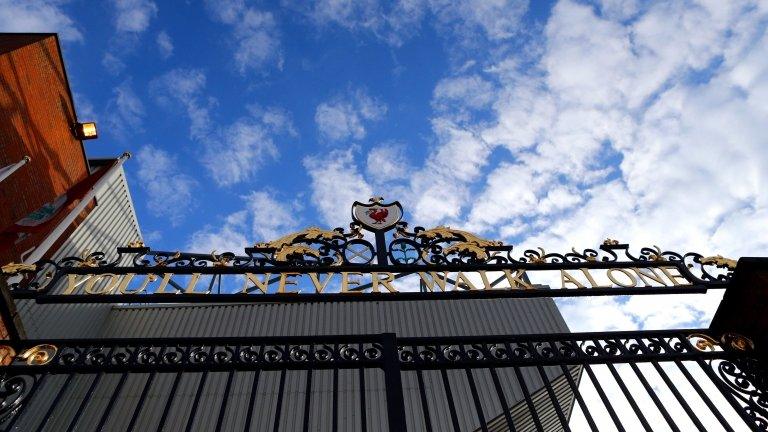Hillsborough inquests: Disaster 'robbed children of father'
- Published
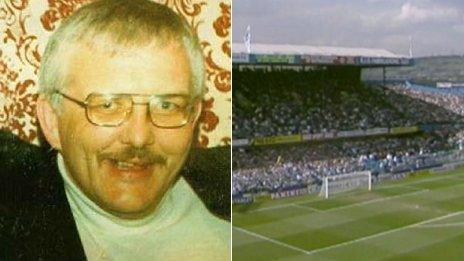
Pat Thompson had five children aged under six at the time of his death
The widow of one of the Hillsborough disaster victims has told an inquest jury in Warrington it "robbed" her five children of their father.
Kathleen Thompson's husband Pat was one of the 96 people who died following overcrowding at the FA Cup semi-final in April 1989.
Mrs Thompson was one of the first of the victims' relatives to give a background statement to the court.
The remaining families will give their "pen portraits" later.
Coroner Lord Justice Goldring has called the disaster "the worst-ever at a British sports stadium".
It unfolded on 15 April 1989 during Liverpool's match against Nottingham Forest at Sheffield Wednesday's ground.
The inquests, set to last a year, were ordered after new evidence revealed by the Hillsborough Independent Panel led to the original inquest verdicts being quashed.
The background statements are the first time the court has heard how the disaster impacted on individual families.
Weeping as she spoke, Mrs Thompson said her husband, a 35-year-old railway guard, "was not a hooligan, but a hard-working family man".
She said he had been "a loving and generous man who treated me with love and respect, a larger-than-life character... and a smashing dad" to five children aged under six.
Opening proceedings, 41-year-old victim Arthur Horrocks' son Jon read out a statement from his mother Susan, in which she said Mr Horrocks had been "a wonderful husband and best friend... devoted and much loved".
The hearing was told Mr Horrocks loved music and had regularly visited the Cavern Club in Liverpool. He had attended every Liverpool home match.
'Effervescent and lively'
Stephen Jones, whose wife Christine was one of seven women who died, said she had been an avid fan who organised coach trips to away matches and loved the atmosphere of the games.
Victim Arthur Horrocks' son Jon read out a statement from his mother Susan
He said the senior radiographer and Sunday school teacher had been "an amazing wife", who "dominated a room".
"She was effervescent, candid and lively," he said.
Wilf Whelan told the hearing about his son Ian, who was nicknamed "Ronnie" after his football hero, Liverpool midfielder Ronnie Whelan.
He said the 19-year-old "wasn't a football hooligan" but a music lover, who had left two red roses on the doorstep of his girlfriend on the day of the semi-final.
"Our family feel they've had to defend his good name for 25 years," he said.
Paying tribute to her brother, Roy Pemberton, Shirley Riley said the family had been left thinking about what he would have achieved, "a successful career, a family and many more dreams... we will never know".
She said her parents "never truly got over the loss" of their son, who had been "extremely precious and the apple of their eye".
Wilf Whelan, whose son Ian died: "Me and my wife sat down and wrote what we thought needed to be said"
Paula Ann Smith's brother Walter said they both attended Liverpool games, but as they only had one ticket for the semi-final he let his sister have it.
"I often think if I had been there with her, she would still be alive today," he said.
Christine McEvoy cried as she told the jury about her daughter, Basildon factory worker Marian McCabe.
She said the 21-year-old had been a "good and generous" woman who worked overtime to pay for tickets and who missed Mrs McEvoy's wedding to go to a game as "her greatest love was Liverpool Football Club".
The day's final two statements came from the families of partners Tracey Cox and Rick Jones.
'Moving statements'
Stephanie Conning, who survived the disaster, described her brother's 23-year-old girlfriend as "the sister I never had".
She said Tracey Cox's death had "permanently affected all our lives for the worst".
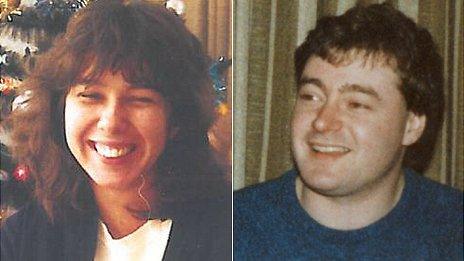
Partners Tracey Cox and Rick Jones went to the game with Mr Jones' sister
Doreen Jones, Rick's mother, cried as she told the hearing of her family's lives "changed forever that awful day".
"I could not imagine a life without Rick and I did not want to. It was a very dark place for us all," she said.
"My pain is centred on what Rick and Tracey missed and what their lives would have been like.
"After all, they only went to watch a football game."
Adjourning the proceedings until Monday, coroner Lord Justice Goldring told the jury the statements were "as emotional as I said they would be".
"They underline the individual tragedies," he said.
- Published3 April 2014
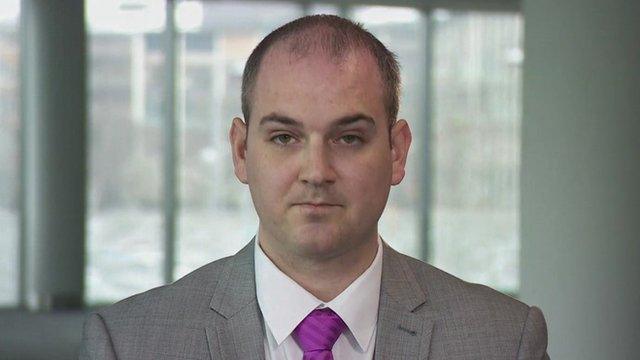
- Published2 April 2014
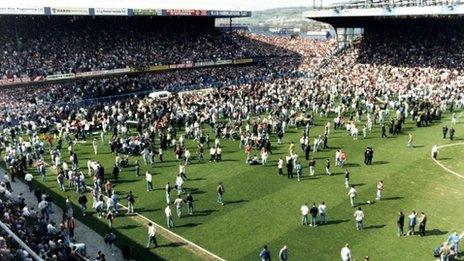
- Published1 April 2014
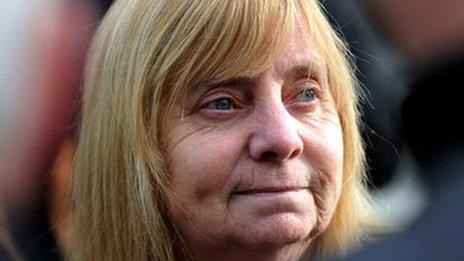
- Published26 April 2016
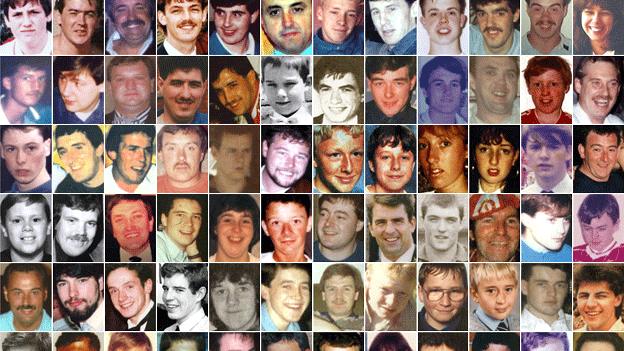
- Published31 March 2014
